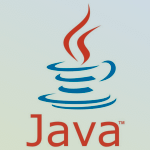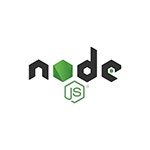
We will notify you once we have something for you
Get the best experience of Shine at your fingertips.
9am - 6pm, Mon to Sat

The accounting interview questions are asked by interviewers to assess the knowledge of the candidates on the core competencies required for the job profile. Candidates need to revise all the fundamental and core concepts of accounting to perform well in the interview. Consider this your golden chance to prove your skills and key competencies and grab the job offer for your dream job.
There are various types of accounting interview questions such as technical, basic, etc. Get a complete understanding of the types of questions that can be asked in your next interview. We have also provided sample answers to some of the important accounting interview questions to help you prepare better.
The accounting interview questions are framed by employers in a way that analyses the suitability of the candidates for the role. Though, no one can exactly guess what questions your interviewers have in their minds.
However, we can pick a few of the most probable questions that can be asked in the interview, the rest depends on the nature of the job profile.
Take a look at the expected accounting interview questions as provided below:
Q1. Can you describe the difference between accounts payable and accounts receivable?
Q2. What are the methods adopted by you to ensure the accuracy of the work?
Q3. Can you mention the difference between deferred tax and deferred tax liability?
Check out the basic accounting interview questions listed below:
Q1. State the three main types of accounts?
There are three main types of account i.e. real, nominal, and personal.
Q2. Can you define some common errors in accounting?
Simply answer it on point like the common errors in accounting are:
Q3. Name some important terms used in the balance sheet?
Some of the important terms used in the balance sheet are:
Assets:
Liability:
Equity:
It is a claim that can be prescribed against the firm's assets in the court. It refers to a claim held by the owner, the creditor, or both.
Q4. What is the abbreviation for the accounting terms debit and credit?
The abbreviation for debit is “dr” and “cr” for credit.
Q5. How many types of business transactions are there in accounting?
There are two types of transactions:
Q6. What is tally accounting?
It is the software used for accounting in small business and shops for managing routine accounting transactions.
Q7. What is VAT in accounting?
VAT is defined as Value Added Tax.
Q8. Explain the basic accounting equation?
As we all know accounting is all about assets, liabilities and capital. So the basic accounting equation is formulated as
Assets= Liabilities+ Owners Equity.
Q9. State different branches of accounting?
There are three different branches of accounting:
Q10. Define Scrap value in accounting?
It is the residual value of an asset. The residual value is the value that any asset holds after its predicted lifetime.
Q11. What is working capital?
Working capital is defined as current assets less current liabilities. In banking, working capital is determined more narrowly as current assets (excluding cash) less current liabilities (excluding interest-bearing debt).
The technical accounting interview questions are asked by the interviewers to assess the technical knowledge of the candidates.
Q1. Define departmental accounting?
It is a type of accounting in which a separate account is created for departments. It is managed solely as well as shown independently in the balance sheet.
Q2. Define the term material facts in accounting?
Material facts are the bills or any documents that become the base of every account book. In simple words, it refers to all those documents on which the account book is prepared, known as material facts.
Q3. What do you understand about the company’s payable cycle?
It refers to the time required by the company to pay all its account payables.
Q4. What is Project Implementation?
Project Implementation involves six steps which are:
The HR asks some general and basic questions regarding the job role and gauges how well the candidates will align with it.
Q1. What is your experience in accounting?
Q2. What is your motivation for choosing accounting as a career?
Q3. Where do you see yourself in five years?
Q4. What strategies do you take to ensure that your work aligns with accounting laws and regulations?
Q5. Tell me about a time when you spotted a significant error in a financial report. How did you deal with it?
Q6. What is your strategy to prioritise tasks during the month-end closing procedure?
Undoubtedly, preparation is the key to success. The way you present your answers in an interview will determine your success rate. Check out some of the worthy interview tips to have a rock-solid preparation strategy.
Freshers are often apprehensive about the interviews. To avoid interview jitters, aspiring accountants need to be well-versed with the most anticipated questions that can be asked in an interview.
A pro tip to present your answers impeccably and capture the attention of the recruiters is to make it quantifiable by incorporating relevant data.
Here is the list of the accounting interview questions for freshers:
Q1. Can you describe a project or coursework that you have pursued in your academics entailing extensive use of accounting services?
Q2. Could you please let me know what a trial balance is and why is it prepared?
Q3. Tell us about a situation when you had to manage a workload under tight deadlines. What strategies were adopted by you to manage your time efficiently?
The interviewers might ask technical questions to experienced candidates. They can also ask the candidates about their previous work experiences. Here is the list of questions that you can expect in an interview for experienced candidates. Take a look at the questions listed below:
Q1. Can you explain a complex accounting issue that you have faced in your previous role? Also, suggest how you can improve it.
Q2. How do you manage the workload when you have multiple deadlines approaching?
Q3. Have you ever faced a situation where you had to explain a complex accounting concept to someone who is not familiar with accounting principles?
Q4. What are the internal processes implemented by you to ensure data accuracy and prevent fraud?
Q5. If you face financial data discrepancies, what would be your approach to identifying and rectifying the error?
You must have gained a comprehensive understanding of the way you should prepare for your next interview. Keep revising the accounting interview questions and be prepared to climb the ladders of success. To appear confident in the interview, you must have a strong preparation for the same. Practice all the questions and prepare a rough draft of the answers.
Download the Shine App to get latest job updates!
Also Read:


Duration: 51 Hours|Mode: Online

Duration: 20 Hours|Mode: Online

Duration: 41 Hours|Mode: Online